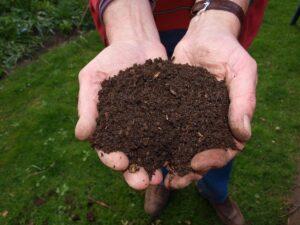When you’re cooking, it’s easy to forget about the small things that add up to big waste. But when you think about how much food ends up in your trash can every week—and how much of that food could have been eaten or composted instead—it becomes clear that reducing your kitchen waste is a lot easier than you might think.
In fact, by swapping out plastic wrap for reusable bags and learning new ways to use spices and herbs instead of buying them packaged at the store (or making them yourself), you’ll save enough money on groceries each month that it’s almost like getting paid back for all the time spent prepping meals before eating them! So let’s get started:
Swap out your plastic wrap
 Use beeswax wrap or reusable parchment paper. Beeswax is thicker, so it can withstand heat better than plastic wrap and won’t release harmful chemicals into your food. If you’re interested in making sure that your food stays fresh longer (even if it’s not being heated), try using those steel dabbas for leftovers instead of plastic bags!
Use beeswax wrap or reusable parchment paper. Beeswax is thicker, so it can withstand heat better than plastic wrap and won’t release harmful chemicals into your food. If you’re interested in making sure that your food stays fresh longer (even if it’s not being heated), try using those steel dabbas for leftovers instead of plastic bags!
Use cloth napkins instead of paper ones—both are better for the environment because they don’t need to be disposed of after use and take up less space in landfills than paper products do; plus they’re more affordable too!
Buy food in bulk and repackage into reusable containers: This way you won’t have to waste any plastic bags—and even better yet: You’ll save money too!
Go reusable
- Buy reusable containers
- Use cloth napkins instead of paper napkins
- Use reusable grocery bags
- Use reusable water bottles
Don’t buy bottled water
If you’re buying bottled water, consider the cost of your purchase. A one-litre bottle costs anywhere from Rs. 20-30, and the bottle ends up in a landfill, more often than not. So if you’re going to buy bottled water anyway, it makes sense to fill up reusable containers with cheaper and more environmentally friendly alternatives like filtered or spring water instead.
If you do decide to buy bottles instead of cans or buckets, make sure they are BPA-free (Bisphenol A is an endocrine disruptor) and recyclable; this will help reduce landfill waste in addition to improving public health through improved sanitation practices.
Compost your food scraps

Image by Joke vander Leij from Pixabay
Food scraps are the most common type of garbage, accounting for about half of all landfill waste. By composting your food scraps, you can reduce landfill waste and improve soil quality.
There are many different ways to compost: you can use a backyard bin or get creative with worms in your kitchen! check if your apartment complex has a community composting program, or initiate one yourself!
When you do your Diwali or Pongal cleaning, use the 6-month rule.
If you haven’t used something in six months, it’s unlikely you need it. Consider donating any kitchen items that no longer serve your needs. You can also sell them to your local recycling centre, or try repurposing them.
Reducing your kitchen waste is easy to do with a few simple swaps.
Reducing your kitchen waste is easy to do with a few simple swaps. Here’s how:
- Make a list of things that you can do to reduce your kitchen waste. This will help you get started, and then it will become easier over time!
- Don’t buy things you don’t need to buy. For example, if there is an item sitting on the shelf in front of you thinking it might be useful one day, think about why it hasn’t been used yet—maybe it’s because no one has asked for it or maybe its usefulness hasn’t come up yet? Either way, try not buying something unless there’s an immediate need for it!
- If there isn’t anything else going on at home right now but still want something better than what was already bought before…think twice next time before buying anything new (even if just once). The last thing anyone wants after spending money on groceries or visiting stores during their busy days are empty cabinets full of food items gone bad due mostly due lack of proper storage conditions for keeping them fresh until needed again later down line.
If you’re ready to take the next step in reducing your kitchen waste, start by swapping out plastic wrap for reusable produce bags. Then get creative with how you reduce food waste — try composting or donating your scraps to a local farm. And finally, don’t forget that the more we all care about this issue, the better! Your efforts will make a difference and ultimately save both money and resources for future generations.

